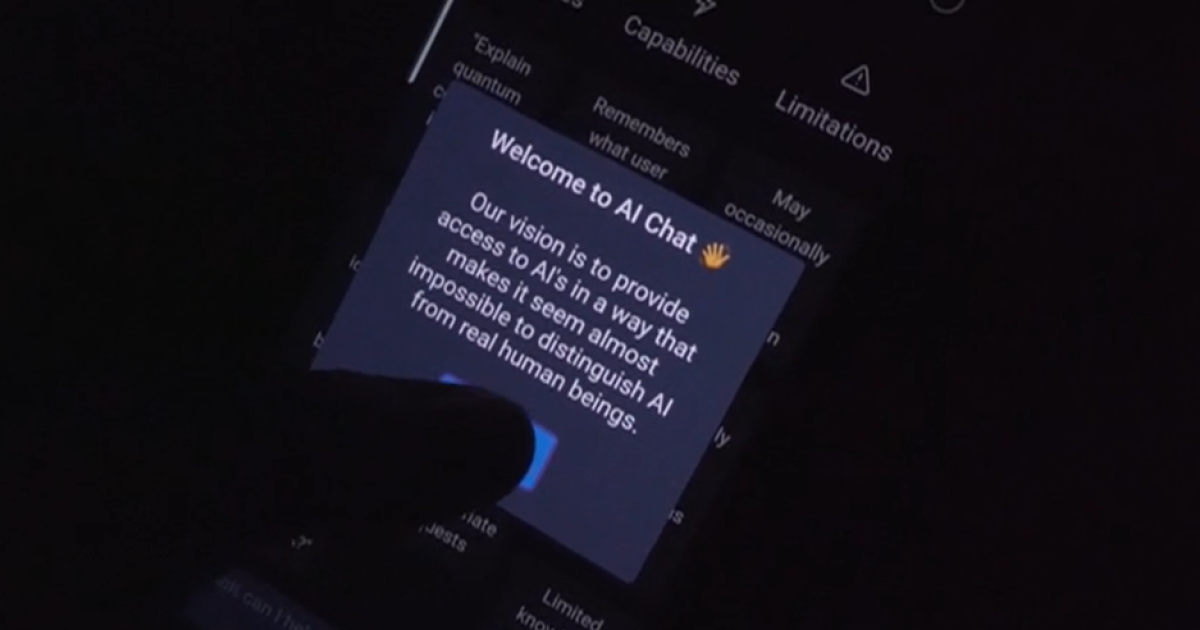Education
The AI Education Start-up Fighting to Save Learning

SAN JOSE, Calif., Sept. 8, 2025 /PRNewswire/ — Disruption is nothing new in tech—it’s every start-up’s goal. Moving fast and breaking things has long been a badge of honor. But where AI meets education, we’ve moved well past disruption. It’s chaos. Teachers are unsure if their classroom methods still work. College professors wonder if they can even tell whether it’s a student or a large language model answering them.
So when venture capitalists start pouring money into start-ups that help students cheat their way through assignments, exams, and even job interviews, the question becomes unavoidable: can education and learning even be saved? And maybe the harder question—should they be?
One company thinks so. And if they succeed, Paradigm might take the lead.
The Asteroid Has Already Struck
Paradigm is a ten-month-old AI-native education company that’s been turning heads with bold ideas and equally bold backers. Founder and CEO Scott Fan isn’t shy about the stakes:
“Our education system is on life support. AI isn’t going away. The asteroid has already struck. It’s adapt or die.”
For Scott, surrendering to an idiocracy where we outsource all original thought to apps isn’t an option. Simply repeating what those apps say isn’t learning, but rather a “sure way to atrophy one’s mind” according to him.
“When humans stop learning, when we lose our curiosity, we cease being human. We have to find a way to make AI work for us, not against us.”
An AI That Doesn’t Hide in the Shadows
Where other platforms conspire to hide AI’s fingerprints, Paradigm puts its groundbreaking tech front and center. Students aren’t passive recipients; they pilot their own learning, shaping the curriculum in real time. The result? Engagement skyrockets. Powered by machine learning and behavioral science, Paradigm’s AI companion is intuitive, unintrusive, and somehow not creepy. Students rediscover the curiosity they had at five, when learning was driven by discovery, not obligation. And instead of letting AI do the work for them, it engages them to “hack the system” and find new ways to enjoy learning.
A Founder’s Story Born of Necessity
Scott’s vision traces back to age nine, when his father, a lawyer, took the family to a remote Tibetan village for a legal aid program. Mandarin-language elementary schooling didn’t exist there, so Scott—fresh out of third grade—jumped directly into seventh. The resources were minimal, but this underaged 7th grader stayed at the top of his class.
Education
Kentucky schools, healthcare embrace AI despite mixed reactions

(LEX 18) — Artificial intelligence is reshaping how local organizations operate, from classrooms in Irvine to healthcare facilities in Lexington, as professionals navigate both the opportunities and challenges of this rapidly evolving technology.
Lisa Blue, who researches AI’s impact on workforce development, delivers six to eight speaking engagements per month discussing AI policy and implementation. She encounters varied student experiences with the technology.
“AI is going to change how we work before it changes who works,” Blue said.
Blue works to shift perceptions about AI in education, particularly addressing misconceptions from K-12 settings.
“We do have students coming in from K through 12, who have been told AI is straight up cheating and it’s bad don’t use it and I’m really trying to change that narrative,” Blue said.
At Estill County Area Technology Center in Irvine, students continue integrating AI into their studies. Allyson Banks, who works at the school, describes the technology’s dual nature.
“It is fantastic and terrifying at the same time,” Banks said.
The school’s programs align well with AI applications, according to Banks.
“We have robotics, manufacturing, a lot of different things that pair really well with AI,” Banks said.
For computer science teacher Zach Bennett, AI offers significant efficiency gains.
“Using AI, you can create things in half the time that it would normally cost,” Bennett said.
Healthcare transformation on the horizon
In Lexington’s healthcare sector, CEO, Dr. Stephen Behnke at Lexington Clinic sees AI as a transformative force, though still in early stages.
“I’d say we’re in the early innings of this,” Behnke said.
Behnke anticipates fundamental changes across the healthcare industry.
“I think that AI is going to fundamentally transform healthcare. I think that the power of the tools today is pretty early,” Behnke said.
Looking ahead operationally, Behnke predicts significant changes within the next decade.
“There’s almost no way that by 2030 2035 healthcare doesn’t look profoundly different,” Behnke said.
A market size and forecast report from Grand View Research supports Behnke’s projections, showing substantial growth in healthcare AI spending. The report projects that $187 billion will be spent on healthcare AI alone by 2030, representing a significant jump from 2024 market size.
The research highlights AI’s expanding role across multiple sectors, from education and manufacturing to healthcare, as organizations adapt to integrate these tools into their operations while addressing concerns about implementation and workforce impact.
As for jobs of the future and how they connect with AI?
Dr. Blue at EKU and Banks at Estill County ATC addressed that question:
“Any kind of job where it’s hands-on so we’re talking like healthcare, advanced manufacturing, logistics, construction, agriculture, they’re all adding AI enhanced jobs right now. So, they’re not really being threatened by it, they’re being enhanced by AI capabilities,” Blue said.
“I don’t think it’s necessarily gonna replace as many humans as it’s going to make us better at our jobs, or at least faster at our jobs,” Banks added.
Education
Daystar University and MindHYVE.ai Launch AI-Powered Higher Education Transformation in Kenya
NAIROBI, Kenya and NEWPORT BEACH, Calif, Sept. 11, 2025 /PRNewswire/ — Daystar University, one of Kenya’s premier private Christian liberal arts institutions, and MindHYVE.ai, Inc., a global innovator in artificial intelligence, have entered into a landmark partnership to embed ArthurAI™, MindHYVE’s agentic AI learning platform, across Daystar’s academic ecosystem.
This partnership positions Daystar as one of the first universities in East Africa to implement a comprehensive AI-powered learning environment at scale — directly addressing the needs of Kenya’s over 500,000 higher education students, many of whom face challenges of access, personalization, and outcomes.
ArthurAI by the Numbers: Transforming Learning and Teaching
ArthurAI has already demonstrated significant measurable impact in academic environments:
- 80% reduction in curriculum preparation time – allowing faculty to shift focus from administrative tasks to mentorship, research, and innovation.
- Adaptive learning pathways – dynamically tailoring coursework to each student’s cognitive profile, learning style, and pace.
- Predictive analytics for student success – enabling early identification of at-risk learners and targeted interventions that raise completion and retention rates.
- Multilingual delivery in 10+ languages – critical in Kenya’s diverse linguistic landscape, ensuring inclusivity and accessibility.
- Mobile-first and offline capability – extending Daystar’s reach beyond classrooms, supporting equitable access even in bandwidth-limited environments.
“ArthurAI will not only enhance our classrooms — it will redefine them,” said Professor Martha Kiarie, Dean of the School of Science, Engineering and Health at Daystar University. “By leveraging adaptive intelligence, we can ensure every student is supported according to their unique learning needs. This is how we prepare our graduates to thrive in an AI-enabled global economy.”
Bill Faruki, CEO & Founder of MindHYVE.ai, added:
“ArthurAI isn’t a theory — it’s a proven system already delivering measurable gains. Partnering with Daystar allows us to show how Africa’s universities can leapfrog legacy systems and lead the world in responsible, scalable AI education.”
The rollout begins this semester across selected departments and will progressively expand to reach Daystar’s entire academic community. Quarterly reviews will measure student engagement, faculty adoption, and institutional outcomes — ensuring continuous improvement and maximum impact.
About Daystar University
Daystar University is a private Christian liberal arts university with campuses in Nairobi and Athi River. Chartered in 1994, Daystar is known for shaping servant-leaders equipped to transform society through faith-driven excellence.
About MindHYVE.ai
MindHYVE.ai™ is redefining the boundaries of intelligence by engineering autonomous systems and deploying domain-specific AGI agents across real-world sectors. Powered by the Ava-Fusion™ large reasoning model and architected for agent coordination, swarm intelligence, and adaptive autonomy, MindHYVE’s technology stack is revolutionizing law, medicine, finance, education, and governance.
With operations in North America, Asia, and now soon in Africa, MindHYVE.ai™ is on a mission to democratize access to transformative intelligence and architect the infrastructure for post-scarcity economies. Backed by HYVE Labs, the company continues to shape the future of agentic systems on a global scale.
Website: www.mindhyve.ai | Email: [email protected] | Contact: +1 (949) 200-8668
Media Contacts
Marc Ortiz
Email: [email protected]
Photo – https://mma.prnewswire.com/media/2771408/MindHYVE_ai_x_Daystar.jpg
Logo – https://mma.prnewswire.com/media/2730797/MindHYVE_ai_Logo_MindHYVE_ai_SQ_Logo.jpg

Education
Oxford Union condemns president-elect’s reported comments on Charlie Kirk shooting | University of Oxford

The Oxford Union has “unequivocally” condemned comments apparently made by its president-elect about the fatal shooting of the rightwing activist Charlie Kirk in the US.
Kirk, 31, was killed at a Utah Valley University show on Wednesday in what authorities have called a political assassination.
George Abaraonye, who became president-elect of the debating society after a vote in June, posted comments in a WhatsApp group after his death, according to the Daily Telegraph.
One message was reported to have said “Charlie Kirk got shot, let’s fucking go”, while another thought to have been posted on Abaraonye’s Instagram account read “Charlie Kirk got shot loool”.
In a statement on Thursday, the Oxford Union criticised the student’s comments and said it “firmly opposes all forms of political violence and strongly stands by our commitment to free speech and considerate debate”.
“The Oxford Union would like to unequivocally condemn the reported words and sentiments expressed by its president-elect, George Abaraonye, with regards to the passing of Charlie Kirk,” the society wrote on X. “His reported views do not represent the Oxford Union’s current leadership or committee’s view.
“The current administration has, under president Moosa Harraj, no association with and is entirely independent from Mr Abaraonye’s administration.”
The statement added: “We would like to reiterate that our condolences lie with Charlie Kirk’s family, especially his wife and young children, who are enduring such terrible grief.”
Kirk and Abaraonye had met during a debate on toxic masculinity held by the Oxford Union in May, the Telegraph reported. Donald Trump, the US president, paid tribute to Kirk as a “martyr for truth and freedom” after the shooting.
-

 Business2 weeks ago
Business2 weeks agoThe Guardian view on Trump and the Fed: independence is no substitute for accountability | Editorial
-
Tools & Platforms1 month ago
Building Trust in Military AI Starts with Opening the Black Box – War on the Rocks
-

 Ethics & Policy2 months ago
Ethics & Policy2 months agoSDAIA Supports Saudi Arabia’s Leadership in Shaping Global AI Ethics, Policy, and Research – وكالة الأنباء السعودية
-

 Events & Conferences4 months ago
Events & Conferences4 months agoJourney to 1000 models: Scaling Instagram’s recommendation system
-

 Jobs & Careers2 months ago
Jobs & Careers2 months agoMumbai-based Perplexity Alternative Has 60k+ Users Without Funding
-

 Podcasts & Talks2 months ago
Podcasts & Talks2 months agoHappy 4th of July! 🎆 Made with Veo 3 in Gemini
-

 Education2 months ago
Education2 months agoVEX Robotics launches AI-powered classroom robotics system
-

 Education2 months ago
Education2 months agoMacron says UK and France have duty to tackle illegal migration ‘with humanity, solidarity and firmness’ – UK politics live | Politics
-

 Funding & Business2 months ago
Funding & Business2 months agoKayak and Expedia race to build AI travel agents that turn social posts into itineraries
-

 Podcasts & Talks2 months ago
Podcasts & Talks2 months agoOpenAI 🤝 @teamganassi













